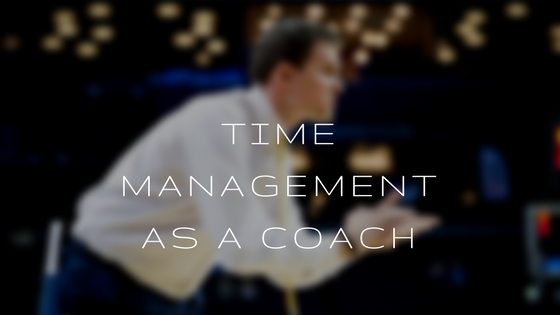With all the responsibilities that come with coaching a basketball team, time management can fall by the wayside, making things that much more difficult. A successful coach knows that in order to have a successful team, planning ahead is key.
Practice is obviously one of the most vital components of sports. It allows both players and coaches to prepare for upcoming games, and equips them with the tools necessary to deal with unexpected challenges that may arise. What can actually a hinder a team’s success however, is an unplanned or poorly scheduled practice regimen.
Rather than having a previously established agenda, teams that participate in drills or scrimmages that were decided on the spot may not be able to address areas of weakness in themselves as individuals, or as an entire team. As a coach, be sure to enter every practice session with a clear goal of what you want each player to achieve, the drills they should be taking part in, and where your team should be at the end of each day.
If saving time is a priority given the day’s schedule or certain players’ availability, try to incorporate multiple activities at once in any given practice session. For example, rather than separating dribbling drills from cardiovascular drills, have your players run the full length of the court while dribbling to develop fast break skills. This targets both their handling and running abilities. Another combination of practices you can utilize is shooting and passing. Have your team line up around the 3-point line, passing multiple basketballs to one another in a pentagonal order, and shooting upon receiving each ball. These are just a few ideas, but combining any number of skills in one drill requires creativity.
A common mistakes many coaches tend to make is creating extremely complex drills that end up costing more time than anticipated. Having to devote a decent amount of time simply explaining how to perform the assigned drill takes away from your team’s time to physically practice. It doesn’t always require incredibly unique practice sessions to improve your players’ skills. Simple drills like relays, passing, and shooting can develop more than just those skills targeted. A player’s cardio, arm strength, and leg strength can increase depending on the level of intensity. Additionally, these simple drills can save you the time and hassle of having to explain more complicated workouts.
Remember, being a basketball coach is not trying to show your players how much you know about the sport. It’s about being an effective source of guidance, and a role model. Address your players individually to improve their abilities, and bring them together as a team for optimal output. Don’t go into practices with the goal of fitting in as many drills as you can, but rather planning your time accordingly.

